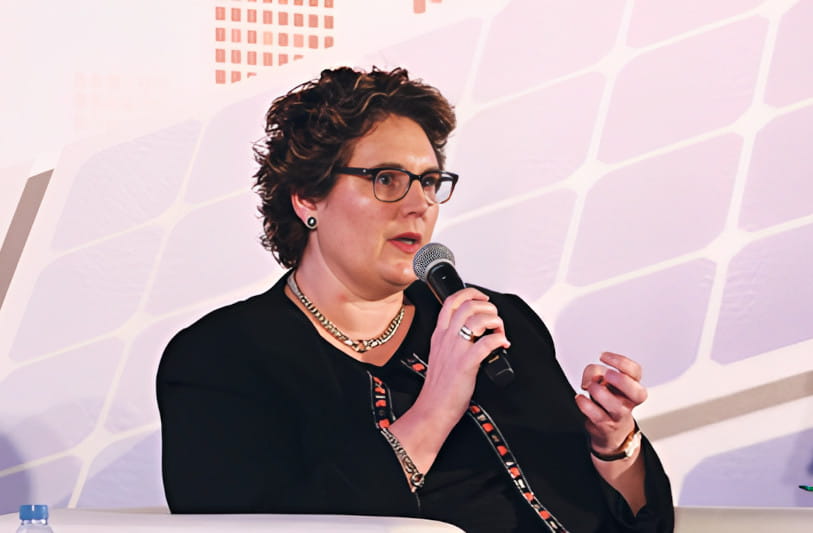Investing in our planet means recognising the importance of climate justice and climate finance. The burden of climate change falls disproportionately on the world's poorest and most vulnerable communities. As we approach Earth Day 2023, bold action must be taken to ensure that climate finance takes the shape of the change we need to see and execute, at a more accelerated speed.
According to the latest data from the International Energy Agency (IEA), as of 2022, an estimated 775 million people around the world still lack access to electricity, while millions more lack access to clean water and other basic services. These communities are the most vulnerable to the impacts of climate change, from more frequent and severe natural disasters to food and water shortages.
Climate finance refers to money mobilised to support climate-related projects. One focus of climate finance is increasing access to reliable and affordable energy for remote communities, which often lack access to reliable sources of energy and rely on traditional fuels, such as wood and charcoal.
These fuels are not only harmful to the environment but also contribute to poor indoor air quality and have serious health implications. By investing in clean energy projects, we can help reduce reliance on traditional fuels and improve access to clean, sustainable energy sources.
Climate finance also supports climate adaptation measures. Globally, the poorest communities are the most vulnerable to the impacts of climate change, such as increased frequency and severity of natural disasters, changes in rainfall patterns, and rising sea levels. By providing funding for climate adaptation measures, such as early warning systems, flood protection infrastructure, and drought-resistant crops, we can help these communities better prepare for and cope with the impacts of climate change.
In addition, climate finance can also help build resilience. Investing in projects that help strengthen these populations' ability to withstand the impacts of climate change is crucial. Supporting the development of sustainable agriculture practices can help these communities become more self-sufficient and less reliant on external resources. Similarly, investing in water management projects, such as rainwater harvesting and irrigation systems, can help ensure access to clean, reliable sources of water.
To ensure the funding is directed effectively and equitably, projects and activities should be tailored to the specific needs and priorities of the communities they are intended to serve. Communities should also be involved in the decision-making process, so they have a say in how the funding is allocated and used.
Working from the bottom up, organisations like the Zayed Sustainability Prize are poised to assist those already working on the ground. Many small and medium sized businesses, non-profit organisations, and individuals bring innovative solutions to the table but lack the resources to scale.
The Bezos Earth Fund, for example, has committed US$10 billion focused on supporting efforts to combat climate change and protect the planet in this “decisive decade”. The Earth Fund is investing in a variety of projects, initiatives and innovative tools, including in the areas of reforestation, renewable energy and regenerative agriculture. These investments will not only help mitigate the impacts of climate change but will also create green jobs and boost economic growth, supporting, not only global, but also locally-led initiatives that promote sustainable development, social equity and environmental justice is essential.
Meanwhile, the Zayed Sustainability Prize recognises and rewards small and medium sized businesses, non-profit organizations and individuals in the fields of sustainability and social impact. Winners receive funding, resources, and networking opportunities to help scale and expand their work.
The end goal of both the Bezos Earth Fund and the Zayed Sustainability Prize is both driven to transform lives of people both now and in the future and to create the transformation needed to deliver a more equitable and just society for all.
Together, the Bezos Earth Fund and the Zayed Sustainability Prize are demonstrating the power of climate finance, to drive positive change around the world. They are supporting innovative and scalable solutions that can help communities and society adapt to a changing climate and build a more sustainable future.
Climate finance underpinned by philanthropy will prove to be critical tool for assisting to alleviate the effects of climate change. Only by supporting the development of clean energy projects, climate adaptation and mitigation measures, and resilience-building activities can we help reduce the vulnerability of these communities and promote sustainable development. By doing so, we can ensure that the benefits of climate finance are felt by those who need it most. Let’s together, join forces and ensure Earth Day in 2023 is a reminder of the importance of investing in our planet, people and taking bold innovative action to ensure a more sustainable future for all.
.svg?iar=0&hash=670E3638BC16C0DD69B262DD1184DEA8)

